
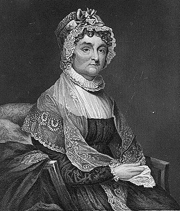
|
Abigail Adams
Born Abigail Smith in Weymouth, Massachusetts in 1744, she had little formal educational training, but was very well read. At the age of twenty, she married John Adams, who would become the second president of the United States. Her letters to her husband while he served on the Continental Congress show her concern for the rights of women and opposition to slavery.
>> Learn more: www.uua.org/uuhs/duub/articles |
|
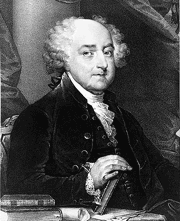 |
John Adams
He was born in Quincy, Massachusetts in 1735. A Harvard Law graduate, he became a strong supporter of independence from Great Britain. He was a member of the Continental Congress and signer of the Declaration of Independence, and served as ambassador to France during the American Revolution. He later was vice-president under George Washington, and elected the second president of the United States in 1796. His political rivalry with Thomas Jefferson is legendary. They died without hours of each other on July 4, 1826.
>> Learn more: http://www.ushistory.org/declaration/signers/adams_j.htm |
 |
Samuel Alito
Born in New Jersey in 1950, Samuel Alito was selected by President Bush to replace Sandra Day O'Connor on the Supreme Court. He was a very controversial nominee because of his 16 year-long record as a judge on the US Circuit Court of Appeals for the Third Circuit where his opinions were generally very conservative. He was confirmed by the Senate by the unusually close vote of 58-42.
>> Learn more: http://www.answers.com/topic/samuel-a-alito-jr |
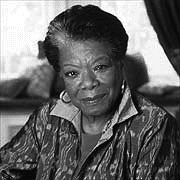 |
Maya Angelou
Born in 1928 in
St. Louis
,
Missouri
, she started her working life as a cook, streetcar conductor, cocktail waitress, dancer and soon became an unwed mother. She went on to become a poet, educator, historian, actress, playwright, civil rights activist, producer, director and one of the world’s most celebrated writers. Her works include her autobiography, I Know Why the Caged Bird Sings.
>> Learn more: http://aalbc.com/authors/maya.htm |
|
|
Crispus Attucks
He was an escaped slave of Natick Indian and African ancestry who lived in
Framingham
, seventeen miles from
Boston
. Working as a seaman under the name of Michael Johnson, he has long been called the first known casualty of the American Revolution. On March 5, 1770 he was among a group of working men who were protesting the presence of British troops in Boston (the British Army occupied Boston in 1768). The soldiers fired into the crowd and killed Attucks and four others in an incident soon dubbed the “Boston Massacre” by Sam Adams. Ten thousand people attended the funeral of the five victims in the largest gathering that the North American continent had ever seen.
>> Learn more: http://www.africawithin.com/bios/crispus_attucks.htm
|
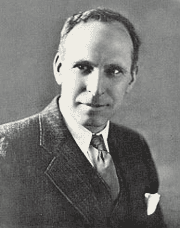 |
Roger Baldwin
Born in Wellesley, Massachusetts in 1884, Roger Baldwin was influenced by the social radical movement as a young man. A lifelong pacifist, he spent a year in jail as a conscientious objector. In 1920 he was one of the founders of the American Civil Liberties Union, and became its first executive director, a position he held until 1950. He lived into his late 90s, dying in 1981. In that year he was awarded the Presidential Medal of Freedom by President Carter.
>> Learn more: http://www.harvardsquarelibrary.org/unitarians/baldwin.html |
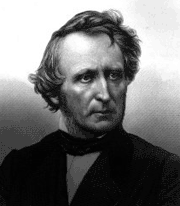 |
John Bingham
Born in Pennsylvania in 1815, he became a Republican Congressman representing Ohio with strong anti-slavery views. Lincoln appointed him as a Judge Advocate of the Union Army in 1864 and in that capacity, he helped try the people charged with assassinating the President. He pushed for the impeachment of President Andrew Johnson and helped draft the Fourteenth Amendment. President Grant appointed him to be ambassador to Japan where he lived for 12 years.
>> Learn more: http://www.spartacus.schoolnet.co.uk/USACWbingham.htm |
|
|
Anne Braden
Born in 1924 in Louisville, Kentucky, she grew up in Alabama. As a young reporter, she covered the Birmingham court, and was troubled by its racist practices. As a white Southerner, she decided she could not stand by and observe injustice. She had to fight it as part of the Movement. In 1954 Braden and her husband Carl bought a house in an all-white Louisville suburb and turned over the deed to a Black family. They were targeted with cross burnings and death threats, and the home was bombed. Her husband went to jail for sedition. Between 1957 and 1973, she worked with the Southern Conference Educational Fund (SCEF), an interracial organization. She remained active in the fight for social justice until her death in 2006.
>> Learn more: http://www.veteransofhope.org/bio.php?p=bio&vid=34
|
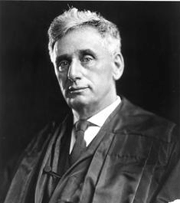 |
Louis Brandeis
Born in
Kentucky
in 1857, Louis Brandeis attended
Harvard
Law
School
and then became a lawyer who worked for causes he believed in, including trade unions' rights and women's rights. When he was appointed to the Supreme Court in 1916 by President Woodrow Wilson, he faced considerable anti-Semitism. He served on the court for 22 years, and distinguished himself by his liberal voting record.
>> Learn more: http://www.michaelariens.com/ConLaw/justices/brandeis.htm
|
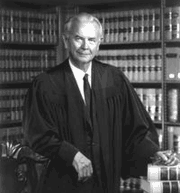 |
William Brennan
Born in 1906 in New Jersey, William Brennan was appointed to the Supreme Court in 1956 by President Dwight Eisenhower. Eisenhower later said he regretted the appointment because Justice Brennan was so liberal in his rulings. He authored 1,300 opinions. Many of them reflected his support of women's reproductive rights, and opposition to the death penalty. He served 33 years on the Supreme Court and died in 1997.
>> Read a tribute to Justice Brennan from Harvard Law Professor Lawrence Tribe: http://www.law.harvard.edu/alumni/bulletin/backissues/fall97/brennan.html
|
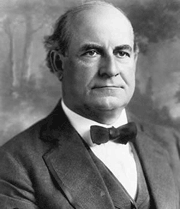 |
William Jennings Bryan
Born in Illinois in 1960, William Jennings Bryan became a lawyer, a Member of Congress and one of the nation's more powerful orators. He ran for the presidency on the Democratic ticket in 1896, 1900 and 1908, losing each time. He later became secretary of state under President Wilson. A believer in the literal interpretation of the Bible, he died shortly after participating in the Scopes trial.
>> Learn more: http://www.spartacus.schoolnet.co.uk/USAbryan.htm |
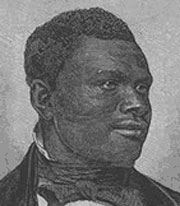 |
Anthony Burns
Born into slavery in
Virginia
, Anthony Burns escaped to
Boston
in 1854 when he was 20 years old. His former owner, Charles Suttle, invoked the Fugitive Slave Law to get him back. His case led to a huge outpouring of support, with massive demonstrations taking place as he was being put on ship and sent back to slavery. The following year a Black church raised $1500 to purchase his freedom and he returned to
Boston
.
>> Learn more: http://www.pbs.org/wgbh/aia/part4/4p2915.html
|
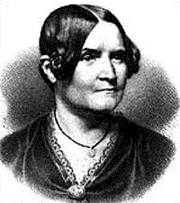 |
Lydia Maria Child
Lydia Maria Child, who was born in 1802 in Medford, Massachusetts, was a novelist, journalist, abolitionist and life-long activist. Her first novel, Hobomok: A Tale of Early Times, was published in 1824. It was the first historical novel in the United States, and featured a Native American hero in love with a white woman. She later wrote "An Appeal in Favor of that Class of Americans called Africans," and edited the National Anti-Slavery Standard. She spoke up strongly for John Brown at the time of the Harper's Ferry raid. After the Civil War, she was a founder of the Massachusetts Woman Suffrage Association, and worked to defend the rights of Native Americans. She died in 1880.
>> Learn more: http://www.uua.org/uuhs/duub/articles/lydiamariachild.html |
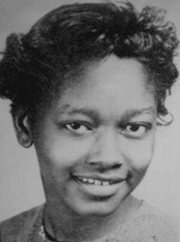 |
Claudette Colvin
Born in Alabama in 1939, Claudette Colvin was a 15-year-old student at Booker T. High School when she defied the rules of Jim Crow segregation by refusing to give up her bus seat to a white man. At the time she was a member of the NAACP Youth Council, which was advised by Rosa Parks. For various reasons, including the fact that she soon became pregnant and seemed at the time emotionally volatile, the NAACP decided not to make hers a test case of segregation. Later she moved to New York, and worked for 30 years as a nurse's aide.
>> Learn more: http://en.wikipedia.org/wiki/Claudette_Colvin |
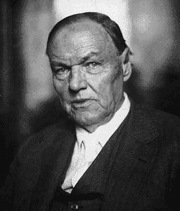 |
Clarence Darrow
Born in Ohio in 1857, Clarence Darrow became the best known lawyer in the United States. He defended several high profile criminal defendants and also took many civil liberties cases for the ACLU. His cross examination of William Jennings Bryan during the Scopes trial was captured in the film "Inherit the Wind."
>> Learn more: http://www.spartacus.schoolnet.co.uk/USAdarrow.htm
|
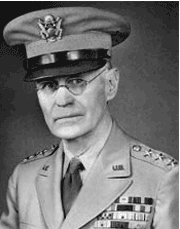 |
General John Lesesne DeWitt
Born in Nebraska in 1880, John DeWitt served in World War I as a lieutenant colonel and then held several positions in the War Department and Army War College. In December 1939 he was made a Lieutenant General and put in charge of the Western Defense Command. In that role, he supervised the evacuation of Japanese-Americans from the West Coast. He retired from the Army in 1957, and was rewarded for his World War II service by being promoted to the rank of full general by the US Congress in 1954.
>> Learn more: http://en.wikipedia.org/wiki/John_L._DeWitt
|
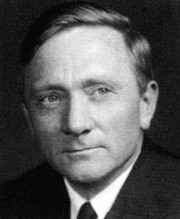 |
William O. Douglas
William Orville Douglas, who was born in Minnesota in 1898, led a colorful life. Known later as "Wild Bill," he overcame polio by hiking in the mountains and had four marriages. He also had 36 years on the Supreme Court, being appointed a justice by President Roosevelt in 1939. While on the court he was a leading advocate of individual rights.
>> Learn more: http://en.wikipedia.org/wiki/William_O._Douglas |
|
|
Frederick Douglass
Born into slavery in Maryland in 1818 as Frederick Augustus Washington Bailey, Frederick Douglass became one of the most inspiring leaders of the abolitionist movement. The son of an enslaved mother and an unknown white father, Douglass escaped from slavery in Baltimore, and settled in New Bedford, Massachusetts where he made a living through various trades he had learned during his years in slavery. He became very well read, and a popular speaker with the American Anti-Slavery Society. After he published his autobiography in 1845, he toured England, Ireland and the United States giving speeches. Two years later, he started his antislavery paper called the North Star. He split with William Lloyd Garrison over whether the US Constitution should be abolished (Garrison’s position) or could be “wielded in behalf of emancipation,” as Douglass believed. In his later years, he served as advisor to President Abraham Lincoln during the Civil War. He also fought for the rights of women.
>> Learn more: http://www.frederickdouglass.org/douglass_bio.html
|
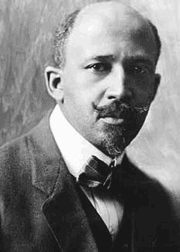 |
W.E.B. DuBois
Born in 1868 in Great Barrington, Massachusetts, William Burghardt DuBois was the country’s leading Black intellectual for nearly a century. He studied at Fisk, Harvard and then the University of Berlin and Germany. On his return to the US he undertook the research for The Philadelphia Negro which led to his being known as the father of Social Science. He challenged Booker T. Washington’s belief that Black people should focus on vocational education and instead, promoted the notion of a “Talented Tenth” who would lead “the race” into full equality. In 1903 he published Souls of Black Folk, and in 1906, was an organizer of the Niagara Movement which gave birth to the NAACP (National Association for the Advancement of Colored People). He became editor of the NAACP’s magazine, Crisis, and a proponent of Pan Africanism. After being “red-baited” during the post World War II Red Scare, he moved to Ghana, where he died on the eve of the March on Washington in 1963.
>> Learn more: http://www.duboislc.org/html/DuBoisBio.html |
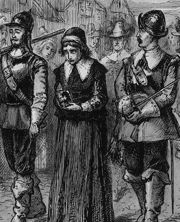 |
Mary Dyer
Born in England, Mary Dyer emigrated with her husband to Massachusetts Bay Colony in 1635. They soon became followers of Anne Hutchinson, and moved with her to Rhode Island in 1638. After a trip to England, Dyer became a member of the Society of Friends (Quakers), a group that was persecuted in England and Massachusetts Bay Colony. In Boston, Quakers were banished "on pain of death." To challenge this law, she visited Boston, and was told she faced execution if she did not leave the colony and stay away. But she visited it again with two fellow Quakers. They refused to recant their religious beliefs and all three were condemned to death. After her two companions were hung, the rope was put around her neck. But at the very last moment she was reprieved and once again banished from the colony. She returned a third time in 1860 and was again arrested and this time executed on Boston Common.
>> Learn more: http://www.geocities.com/heartland/valley/2822/marydyer.html |
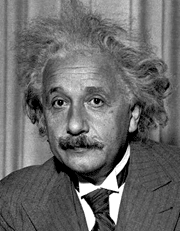 |
Albert Einstein
Born in Ulm, Germany in 1879, Albert Einstein was a physicist and the most famous scientist of his time. He is best known for proposing the "special theory of relativity" in 1905. He received the Nobel Prize for Physics in 1921. When the Nazis came to power he was deprived of his property and his German citizenship because he was Jewish. In 1934 he moved to the United States, and held a post at Princeton University until his death in 1955. A pacifist who was considered a political radical, he was targeted by the 1950s Red Scare.
>> Learn more: http://www.spartacus.schoolnet.co.uk/USAeinstein.htm
|
|
|
Abe Fortas
Born in Memphis, Tennessee to parents who had immigrated from Europe as Orthodox Jews, Abe Fortas attended Yale Law School. He became close to the prominent Texas politician, Lyndon Baines Johnson, rendering him legal services which led to Johnson calling him the "best lawyer in America." When Johnson became president after President Kennedy's assassination, he appointed Abe Fortas to the Supreme Court in 1965. In that position, Justice Fortas continued to give Johnson advice. This ongoing close relationship with the president, and financial dealings which were seen as unethical, led to his resignation from the Supreme Court in 1969.
>> Learn more: http://www.spartacus.schoolnet.co.uk/JFKfortasA.htm
|
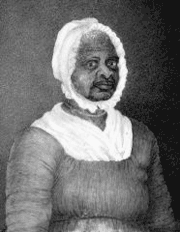 |
Elizabeth "Mumbet" Freeman
Born into slavery in 1742, Mumbet (as she was then known) became the first woman to sue successfully for her freedom in the American Republic. She was working for her master, Colonel John Ashley, in Sheffield, Massachusetts when she heard people discussing the new Massachusetts Constitution and its Declaration of Rights. She then approached attorney Theodore Sedgwick to bring a case in the Court of Common Pleas, arguing that she too had rights under this constitution. The name of her fellow slave, Brom, was added to the case, Brom and Bett v. Ashley, which in 1781, succeeded in winning them their freedom. Afterwards, John Ashley asked her to return to his home as a paid employee, but instead she worked as a housekeeper and nurse for the Sedgwicks under her new name, Elizabeth Freeman. She died in 1829 and was buried in the Sedgwick family plot.
>> Learn more: http://www.massmoments.org/moment.cfm?mid=244 |
|
|
Mohandras Gandhi
Born in India in 1869 when it was under British rule, Mohandras Gandhi, who later was called by the honorary title "Mahatma," became perhaps the most influential man of his time. As a young man, he studied to be a barrister in London and immersed himself in learning about different religions. In 1893, he moved to Natal, South Africa and encountered – and fought -- the racial discrimination to which the Indian community was subjected. While in South Africa, he developed the principles of Satyagraha, which used nonviolence and civil disobedience to attain political and social goals. He returned to India in 1915. Before long became the leader of the Indian movement for independence from Great Britain. He used marches, fasts, and other nonviolent techniques to campaign, successfully, for independence. During this time, he was frequently arrested, and spent years in prison. He would always emerge more powerful than ever in the eyes of his people. The man who turned away from violence and promoted a program of tolerance for all religions was assassinated by a Hindu extremist in 1948.
>> Learn more: http://www.infoplease.com/biography/var/mohandasgandhi.html
|
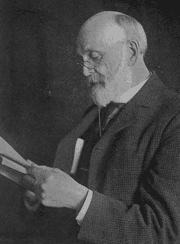 |
William Lloyd Garrison
Born in Newburyport, Massachusetts in 1805, Garrison became a committed abolitionist who, in 1831, founded his own hard hitting newspaper, the Liberator. Over the period of 35 years, he published 1,820 issues. Garrison argued for the immediate emancipation of all slaves and believed that when slavery ended, freed Blacks could successfully assimilate into society. His ideas were considered so controversial that he got physically attacked in Boston. He helped found the New England Anti-Slavery Society and the American Anti-Slavery Society, and served the latter as its president from 1843 to 1865. Garrison believed that the US Constitution was tainted by its endorsement of slavery and on July 4, 1854 burnt a copy of it at an anti-slavery meeting. He and Fredrick Douglass had a falling out over this issue, with Douglass maintaining that the Constitution could be reformed and used to promote racial equality. Garrison also supported women in their struggle for the vote.
>> Learn more: http://www.pbs.org/wgbh/aia/part4/4p1561.html
|
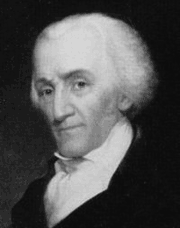 |
Elbridge Gerry
Born in the port town of Marblehead, Massachusetts in 1744, Gerry was a merchant, politician, and eventually, vice-president of the United States under Madison. He was also one of the signers of the Declaration of Independence and the Articles of Confederation, and a participant in the Constitutional Convention. He refused to sign the Constitution because it lacked a Bill of Rights, and worked against its ratification in Massachusetts, which he later served as governor. His name is attached to the process of “gerrymandering” -- in which electoral districts are drawn with the aim of aiding the party in power.
>> Learn more: http://www.let.rug.nl/usa/B/gerry/gerry.htm
|
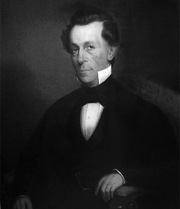 |
William Giles
A lawyer from Maryland, William Giles was born in 1807. He only service one term in Congress before becoming a judge for the rest of his life. An officer of the American Colonization Society, he promoted the emigration of free Black people from the United States to Liberia on the African coast.
>> Learn more: http://bioguide.congress.gov/scripts/biodisplay.pl?index=G000184 |
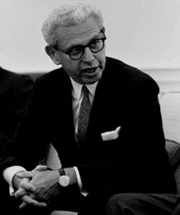 |
Arthur Goldberg
The son of poor Russian immigrants, Arthur Goldberg was born in Chicago in 1908. After going to law school, Goldberg worked as a lawyer for labor unions. He was appointed Secretary of Labor by President John Kennedy in 1961, and an associate justice of the Supreme Court in 1962. He served less than three years on the court, resigning at the request of President Lyndon Johnson in order to serve as US Ambassador to the United Nations. He died in 1990.
>> Learn more: http://goldberg.law.northwestern.edu/mainpages/bio.htm |
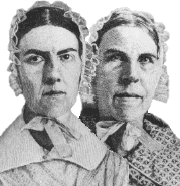 |
Sarah Grimke and Angelina Grimke Weld
Born into a slave-owning family in South Carolina, the Grimke sisters became Quakers and outspoken abolitionists and later, advocates for women's rights. Having seen the cruelty of slavery at first hand, they traveled the country speaking out against it. They also wrote influential articles and pamphlets, including Angelina's Appeal to the Christian Women of the South, which encouraged white women to turn against slavery. They did not just work for the abolition of slavery. They also denounced racial prejudice and argued for equality. After the Civil War, they turned their energies to the struggle for women's voting rights.
>> Learn more: http://www.edwardsly.com/grimkes.htm |
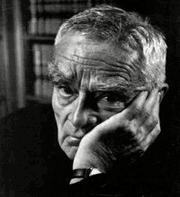 |
Billings Learned Hand
Born in Albany, New York in 1872, Learned Hand became a renown federal judge, but never served on the Supreme Court. He was a judge on the US Court of Appeals for the Second Circuit from 1924-51, where his thousands of opinions and pithy quotations were much admired.
>> Learn more: http://www.commonlaw.com/Hand.html |
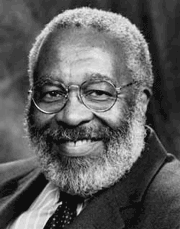 |
Vincent Harding
A Movement veteran and friend of Dr. Martin Luther King, Jr., Vincent Harding is Professor of Religion and Social Transformation at the Iliff School of Theology in Denver. He was senior adviser to the PBS television series, Eyes on the Prize: America's Civil Rights Years, produced by Blackside Inc. in Boston.
>> Read Vincent Harding's essay describing his Movement years, "Freedom's Sacred Dance": http://www.yesmagazine.org/article.asp?ID=389 |
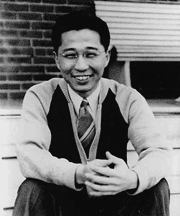 |
Gordon Hirabayashi
Born into a family of Buddhists in Washington state, Gordon Hirabayashi became a conscientious objector after the US entered World War II. He refused to register under the 1942 exclusion order and violated a curfew imposed on Japanese-Americans. He was sentenced to 90 days in prison and challenged his conviction all the way up to the Supreme Court which decided in the government's favor. Years after the war, evidence was uncovered by researcher Peter Irons that demonstrated the government had lied when it made the argument of "military necessity" in justifying the evacuation order. In fact, US intelligence agencies and the FBI reported that Japanese-Americans did not present a security threat. In 2001, Hirabayashi told an interviewer, "If you believe in something, if you think the Constitution is a good one, and if you think the Constitution protects you, you better make sure that the Constitution is actively operating... Otherwise, it's a scrap of paper. We had the Constitution to protect us in 1942. It didn't because the will of the people weren't behind it.
>> Learn more: http://www.answers.com/topic/gordon-hirabayashi |
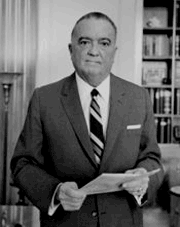 |
J. Edgar Hoover
Born in Washington DC in 1895, J. Edgar Hoover entered the Justice Department in 1917 and soon became the mastermind of the Palmer Raids. In 1924 he was made director of the FBI, and remained in that position for 48 years until his death in 1972. During that time he had fierce supporters and detractors. He was praised as the greatest crime fighter in US history, and feared for the way he used the Bureau's surveillance and intelligence gathering to intimidate his opponents, including US presidents. Many questions remain about his motivation and private life.
>> Learn more: http://en.wikipedia.org/wiki/J._Edgar_Hoover |
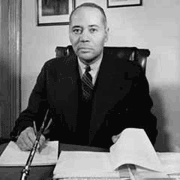 |
Charles Hamilton Houston
Known as "the man who killed Jim Crow," Charles Hamilton Houston was born in 1895 in Washington DC. His experience in the segregated US Army convinced him that he had to find a way of fighting discrimination and racism. He went to Harvard Law School, where he was the first Black editor of the Harvard Law Review, and later trained a significant number of Black lawyers at Howard University Law School. He then worked with the NAACP to develop the legal strategy to overthrow Plessy v. Ferguson ("separate but equal"). He died at age 55 in 1950, four years before his protege, Thurgood Marshall, argued against "separate but equal" before the Supreme Court – and won.
>> Learn more: http://www.abanet.org/publiced/chh.html |
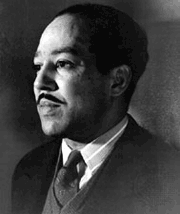 |
Langston Hughes
Langston Hughes was born in Missouri in 1902, and writing poetry by the time he was an eighth grader in Cleveland. He traveled through Africa and Europe before returning to New York City in 1924, and becoming known as the poet of the "Harlem Renaissance." He wrote an enormous amount – books of poetry, plays, articles, three autobiographies. He died in Harlem in 1967.
>> Learn more: http://www.myhero.com/myhero/hero.asp?hero=langstonHughes |
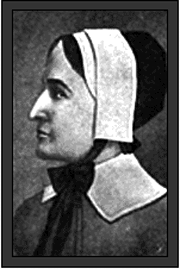 |
Anne Hutchinson
Born Anne Marbury in England in 1591, Anne became the wife of William Hutchinson and moved with him and other Puritans to the Massachusetts Bay Colony in 1634. There, she began to hold Bible study sessions in her home, and criticize the rigid Puritan hierarchy. Saying she was motivated by an inner spiritual truth, she attracted several followers. Puritan leaders, who felt woman should be totally submissive, called her a heretic and "American Jezebel," and put her on trial for blasphemy. She was banished from the Massachusetts Bay Colony and moved with followers first to Rhode Island and then to New York. She and many members of her settlement and family were killed in an Indian attack in 1643.
>> Learn more: http://www.annehutchinson.com/anne_hutchinson_biography_001.htm |
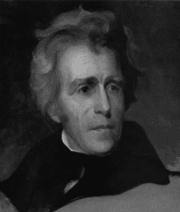 |
Andrew Jackson
The seventh president of the United States, Andrew Jackson was born to poor parents in 1767 on the Carolina frontier. He had few years of schooling, but became a lawyer, a general and a large plantation owner and slave-holder in Tennessee. After winning the battle of 1812 in New Orleans, "Old Hickory" as he was known played a major role in removing Native Americans from their land and pushing them west. Campaigning to expand the vote and access to office, he served in Congress before becoming president in 1828 and 1832. He was the first president who was a "man of the people," and not of the American upper class.
>> Learn more: http://statelibrary.dcr.state.nc.us/nc/bio/public/jackson.htm |
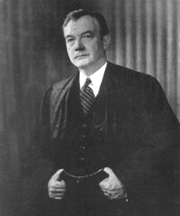 |
Robert Jackson
Born in Pennsylvania in 1892, Robert Jackson became an attorney and then held several appointments in the Roosevelt Administration, including that of Attorney General. In 1941 he was appointed to be a justice on the US Supreme Court and is considered one of the best justices in US history by many legal scholars. After World War II he served as US Chief Prosecutor at the Nuremberg trials of Nazi war criminals. He died in 1954.
>> Learn more: http://www.oyez.org/oyez/resource/legal_entity/82/biography |
 |
Thomas Jefferson
Jefferson was born in 1743 in Virginia to the parents of plantation owners. At one point of his life, Jefferson owned 200 slaves, seven of whom he freed. He may have had children with one of the slaves at his Monticello plantation, Sally Hemmings. As a delegate to the Continental Congress, he was selected to draft the Declaration of Independence. He served as the first secretary of state (under George Washington) and vice president under his arch rival President John Adams – in those days the runner-up in electoral votes in the presidential election became vice-president. In 1798 he was elected third president of the United States. During his time in office he was responsible for the Louisiana Purchase, which added a huge amount of land to the United States. He died on July 4, 1826 within hours of the death of John Adams.
>> Learn more: http://www.monticello.org/jefferson/biography.html |
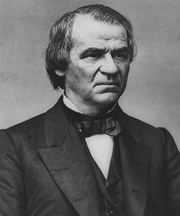 |
Andrew Johnson
Johnson was born in a log cabin in
North Carolina
and never attended school. He moved to
Tennessee
where he was elected to the state House of Representatives and then the US House. In 1853 he became governor of
Tennessee
. He favored the Fugitive Slave law and defended slavery. Because he opposed the break up of the Union, he won the support of President Abraham Lincoln who appointed him military governor of
Tennessee
during the Civil War. In 1864, thanks to
Lincoln
's backing, he became vice-president of the
United States, and after
Lincoln
's assassination, President. Opposed to ending slavery, he had a turbulent presidency. In February 1868, after trying to dismiss Secretary of War Edwin Stanton, Congress voted to impeach him. By a single vote, the Senate decided not to convict him. After finishing
Lincoln
's term, he lost his party's nomination and retired to
Tennessee
. He died in 1975, shortly after being elected US Senator.
>> Learn more: http://www.americanpresident.org/history/andrewjohnson
|
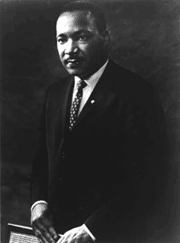 |
Dr. Martin Luther King Jr.
The son of Reverend Martin Luther King, Sr. and Alberta Williams King, he was born in Atlanta in 1929. He studied at Morehouse College, Crozer Theological Seminary and Boston University, where he met Coretta Scott. They were married in 1953. In 1954 he became the pastor of Dexter Avenue Baptist Church in Montgomery, Alabama and soon became leader of the Montgomery bus boycott. In 1957 he became president of the Southern Christian Leadership Conference which implemented the non violent principles of Mahatma Gandhi to work for racial justice. King was the youngest person to ever win the Noble Peace Price. He was assassinated on April 4, 1968 in Memphis, Tennessee. At the time, he was organizing a Poor People’s Campaign to demand economic justice.
>> Learn more: http://www.thekingcenter.org/mlk/bio.html |
Korematsu.gif) |
Fred Toyosaburo Korematsu
Born in Oakland, California in 1919, Fred Korematsu went into hiding when General John DeWitt ordered Japanese-Americans to report to Assembly Centers and then face evacuation. He was captured in 1942, tried and convicted, and sent to Topaz camp in the Utah desert. But he continued to pursue a legal challenge to internment. The US Supreme Court rejected his appeal. Much later, researcher Peter Irons discovered evidence that Charles Fahy, the Solicitor General of the US who argued against Korematsu before the Supreme Court, had deliberately withheld FBI and other intelligence reports from the court. These reports stated that Japanese-Americans were not considered a security threat. Korematsu, who received a Presidential Medal of Freedom from President Clinton in 1998, spent his later years speaking out against racial prejudice and discrimination. Shortly before his death in 2005, he worked with lawyers to file a brief before the Supreme Court challenging the indefinite detention of Guantanamo detainees.
>> Learn more: http://www.pbs.org/pov/pov2001/ofcivilwrongsandrights/storyline.html |
 |
Abraham Lincoln
Born in 1809, in a log cabin in Kentucky, Lincoln became the 16th President of the United States. His childhood – living on a remote farm in Indiana, and then moving to Illinois where he tried various ways of earning a living, including an unsuccessful run for the state legislature – gave little hint of his later greatness. He became a lawyer, a member of the Whig party, and was finally elected to the state legislature and US House of Representatives, where he opposed the Mexican War. The passage of the Kansas-Nebraska Act gave him a national platform in his debates with its sponsor, Stephen Douglas, to denounce the opening of new lands to slavery. In 1860 he became the first Republican to be elected president. He was assassinated on April 14, 1865, just five days after the South’s General Lee surrendered to Ulysses Grant.
>> Learn more: http://sc94.ameslab.gov/TOUR/alincoln.html
|
 |
James Madison
A political ally of Jefferson’s was his fellow Virginian, who became the fourth president of the United States. Born in 1751 he attended Princeton, and then, served in the Continental Congress and was a leader in the Virginia Assembly. When the Constitution was being drafted he took extensive notes on the proceedings, and has been called the “father of the Constitution.” He also was the primary drafter the Bill of Rights, and author of many of the Federalist Papers that pushed for the adoption of the Constitution. He and Thomas Jefferson drafted the Virginia and Kentucky resolutions to protest the Alien and Sedition Acts that were passed during John Adam’s term in office. During Madison’s presidency, he had to flee Washington DC when the British invaded and burned down the White House.
>> Learn more: http://www.bartleby.com/65/ma/MadisonJ.html |
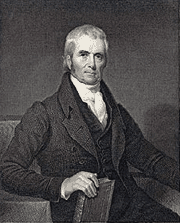 |
John Marshall
Born in Virginia in 1755 to parents who were friends with George Washington, John Marshall trained as a lawyer and then fought in the Revolutionary War. He served in the Virginia House of Delegates, where he spoke up in favor of a strong judiciary during debates over the ratification of the US Constitution. He was President John Adams’ secretary of state and in January 1801, just before his term as president came to an end, Adams appointed him to be the fourth Chief Justice of the US Supreme Court. He presided over the court for three decades during its formative period. Marshall helped shape the US legal system and established the principle of judicial review – that the court could strike down laws that violated the US Constitution.
>> Learn more: http://www.answers.com/topic/john-marshall
|
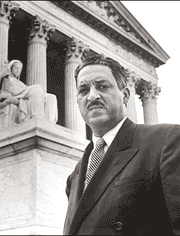 |
Thurgood Marshall
Born in 1908 in Baltimore, Marshall was the grandson of a slave. He was denied admission into the University of Maryland law school because he was Black, and then attended Howard University Law School. After establishing a private practice in Baltimore, he went to work with Charles Hamilton Houston at the NAACP and helped to develop the strategy to overthrow the Plessy v. Ferguson “separate but equal” decision that endorsed segregation. One of Marshall’s first cases was to sue the University of Maryland, and win. Marshall won most of the cases in which he appeared before the US Supreme Court. In 1961 he was appointed a judge on the U.S. Court of Appeals of the Second Circuit by President Kennedy and in 1965 President Johnson appointed him to the office of the U.S. Solicitor. In 1967, he joined the US Supreme Court as its first African-American justice where he distinguished himself by his commitment to individual rights and social justice. He retired from the Supreme Court in 1991 and died two years later.
>> Learn more: http://chnm.gmu.edu/courses/122/hill/marshall.htm
|
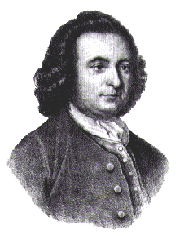 |
George Mason
Born in Virginia in 1725, George Mason is known as the “father of the Bill of Rights.” He was a wealthy plantation owner who owned many slaves, yet favored the abolition of the slave trade. He was very active in pushing for independence from Great Britain and was a prominent member of the Constitutional Convention. But he refused to sign the Constitution because he feared the Senate was too powerful, the House too weak and it lacked a Bill of Rights. James Madison used the Virginia Declaration of Rights that Mason had earlier drafted as the basis of the Bill of Rights.
>> Learn more: http://lexrex.com/bios/gmason.htm |
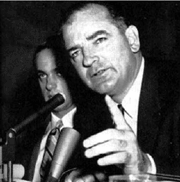 |
Joseph McCarthy
Born in Wisconsin in 1908, Joseph McCarthy became an attorney and judge, and eventually a Republican senator from Wisconsin. He became nationally-known in 1950 when he made a speech saying that communists had infested the State Department, and he had their names on the piece of paper in his hand. A Senate committee later found his charges baseless. But that did not stop him. He mounted an anti-communist crusade that relied not on facts, but on slander, hearsay and the tarnishing of reputations. In 1954 people around the country saw him in action when his hearings were televised. He was publicly discredited soon after, and died in 1957 of complications due to alcoholism.
>> Learn more: http://en.wikipedia.org/wiki/McCarthyism |
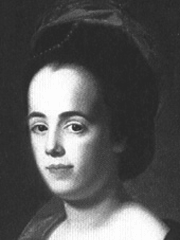 |
Judith Sargent Murray
Born in Gloucester, Massachusetts in 1751, Judith Sargent Murray was a poet and essayist who strongly supported the American Revolution as a young woman. After the death of her first husband, she married the Rev. John Murray, and helped him establish the Universalist religion in the United States. Her writings on women's position in society were far ahead of the times. She had completed the manuscript of "On Equality of the Sexes" during the years of the Revolution (1779); it was, however, not published until 1790. She died in 1820.
>> To find out more about how her ideas foreshadowed Betty Friedan's 1963 work The Feminine Mystique: http://www.pinn.net/~sunshine/march99/murray3.html |
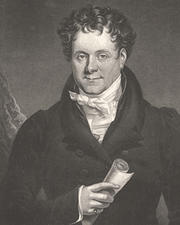 |
Daniel O’Connell
He was born in County Kerry, Ireland in 1775 and educated in France because as a Roman Catholic he was barred from British universities. After becoming a lawyer, he turned to politics, believing that the Irish had to win their rights through the political process rather than through armed struggle. Known as the “Liberator,” he set up the Catholic Association to work for the repeal of British laws penalizing Roman Catholics because of their religion and for the rights of Irish Catholics. He became the first Catholic mayor of Dublin. He also was strongly opposed to slavery and campaigned for its abolition.
>> Learn more: http://multitext.ucc.ie/d/Daniel_OConnell |
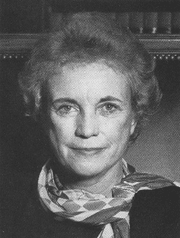 |
Sandra Day O'Connor
Born in Texas in 1930, Sandra Day O'Connor moved to Arizona as a child. After graduating from law school she entered politics as a Republican, and became the first woman to be majority leader of the Arizona state senate. In 1981, President Regan appointed her to be the first woman on the US Supreme Court. She served as a justice for 24 years and was known as a moderate and influential "swing voter" in 5-4 opinions. She resigned from the court in 2005.
>> Learn more: http://en.wikipedia.org/wiki/Sandra_Day_O'Connor |
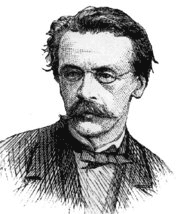 |
John O' Sullivan
Born on a British ship during the War of 1812, O'Sullivan became a newspaper man and a New York politician. He co-founded and edited the Democratic Review, a magazine that promoted Andrew Jackson's brand of democracy. His New York Morning News columns popularizing the notion that the United States had a "Manifest Destiny" to spread from sea to sea were extremely influential and represented the peak of his career. He later worked for the independence of Cuba from Spain, and during the Civil War was an active supporter of the Confederacy.
>> Learn more: http://en.wikipedia.org/wiki/John_L._O'Sullivan |
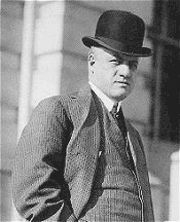 |
A. Mitchell Palmer
Born in Pennsylvania in 1872, Alexander Mitchell Palmer served as a congressmen who was known for progressive views on civil rights and women’s rights. But his outlook changed when he became President Woodrow Wilson’s Attorney General in 1919. The bombing of his Washington DC home (in which the bomber perished) may have been a factor in turning him against socialists and immigrants. With the help of J. Edgar Hoover, he launched raids in 1919 and 1920 to round up and deport people he saw as dangerous “radicals” during the period known as the first Red Scare. In 1920 he made an unsuccessful attempt to become the Democratic Party’s candidate for president. In his later years he left politics, and worked in the private practice of law.
>> Learn more: http://www.spartacus.schoolnet.co.uk/USApalmerA.htm |
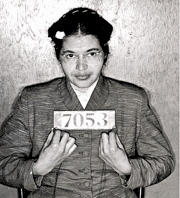 |
Rosa Parks
Born in 1913 in Tuskegee, Alabama, Rosa Parks was in her 40s when she took the action that led to her being called "the mother of the civil rights movement." She decided she would no longer get up to relinquish her seat on a Montgomery bus to a white man. A seamstress at a Montgomery department store, she was very active at that time in the local NAACP and, with her husband, had taken part in voter registration drives. She had spent part of the summer of 1955 at an interracial workshop at the Highlander Center in Tennessee, where she later said she "gained strength to persevere in my work for freedom, but just for blacks but for all oppressed people." Rosa Parks, who lived in Detroit in her later years, received the Presidential Medal of Freedom in 1996. After she died in October 2005, she was the first woman in US history to lie in state at the Capitol in Washington DC.
>> Learn more: http://www.achievement.org/autodoc/page/par0bio-1 |
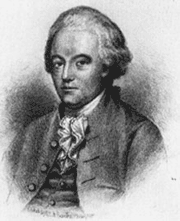 |
Charles Pinckney
Born in 1757 to very well off parents in South Carolina, Pinckney would spend his life in politics. He fought during the revolution and was captured by the British. After his return to civilian life, he served in Congress and in the state legislature. He was one of the drafters of the US Constitution and penned as many as 30 provisions of the document. He favored a strong national government like the Federalists. But he also shared many of Thomas Jefferson’s political views and served as Jefferson’s campaign manager and ambassador to Spain when Jefferson was president. In that role he helped negotiate the Louisiana Purchase. He served many terms as governor of South and in 1818 was elected to the US House of Representatives.
>> Learn more: http://www.let.rug.nl/usa/B/pinckney/pinckney.htm |
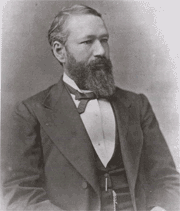 |
Homer Plessy
Homer Plessy, a businessman and civil rights activist, was born in
Louisiana
in 1863, during the middle of the Civil War. He had one-eighth Black ancestry which meant he was termed an "octoroon" in Louisiana's complicated racial classification system. Because he could "pass" as white, Plessy was asked in 1892 to bring a legal challenge to an 1890 streetcar law that required segregation on
Louisiana
trains. The case, Plessy v. Ferguson, was heard by the US Supreme Court which, in 1896, ruled that the streetcar law was legal, and endorsed so-called "separate but equal" segregation. Plessy died in 1925.
>> Learn more: http://www.who2.com/homerplessy.html
|
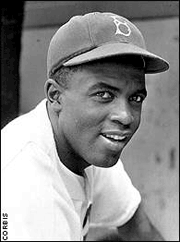 |
Jackie Robinson
Ohio-born Jackie Robinson was a star athlete at the University of California before joining the army during World War II when it was still segregated. He was court-martialed for insubordination for refusing to go to the back of a public bus at Fort Hood, Texas. While he was playing baseball for the Negro American League, he came to the attention of Brooklyn Dodger general manager Branch Rickey who signed him to what was then an all-white team in an all-white league. On April 15, 1947, Jackie Robinson broke professional baseball's color bar. During that year he suffered continual harassment from fans and players alike, but still became the 1947 Rookie of the Year. He retired from the game ten years later, and was inducted into the Baseball Hall of Fame in 1962.
>> Learn more: http://espn.go.com/sportscentury/features/00016431.html
|
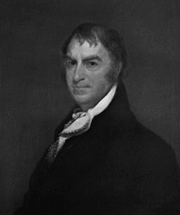 |
Theodore Sedgwick
Born in 1746 in Connecticut, Theodore Sedgwick became an attorney in Great Barrington, Massachusetts who took part in many of the major events of the Revolutionary war period and young Republic. He was a member of the Massachusetts state legislature and the Continental Congress, and then a delegate to the state convention that ratified the US Constitution. After the Constitution was adopted, he, as a Federalist, became a member of the US House of Representatives and later, the US Senate. He also served as a judge on the Supreme Court in Massachusetts.
>> Learn more: http://en.wikipedia.org/wiki/Theodore_Sedgwick
|
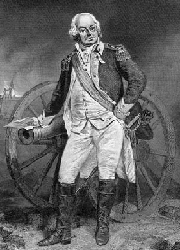 |
Daniel Shays
Likely born in 1747 in the small town of Hopkinton, Massachusetts, Shays fought in many American Revolution battles as a captain in the Continental Army. After he retired from the army, he settled in Pelham. Like many former soldiers, he found the “scrip” he had been paid for his services was now worth little. At the same time, new taxes were levied to pay for the Revolutionary War debts, and farmers who couldn’t pay their taxes were having their land seized. In 1786, he became a leader of an army of 800 poor farmers. They marched to Springfield to prevent the courts from opening so their land could not be taken. In the first skirmish with government forces, four men were killed. The fighting continued through 1787, when many of the farmers, including Shays, fled to the Vermont Republic. Shays Rebellion was over, and Shays was charged with treason and condemned to death. However, he was given an amnesty, and eventually granted a small pension for his exemplary service in the Revolution. He died in poverty in New York.
>> Learn more: http://www.search.com/reference/Daniel_Shays |
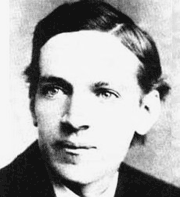 |
Upton Sinclair
Born in 1878 in Baltimore, Sinclair was an American novelist, essayist, “muckraker,” playwright, and short story writer, whose most famous book, The Jungle, exposed conditions in the meat packing industry. This book led to the Pure Food and Drug Act of 1906. His later works would also highlight major social and economic problems in the United States. A socialist, Sinclair ran unsuccessfully for governor of California in 1934, and continued to write books into his old age.
>> Learn more: http://www.online-literature.com/upton_sinclair/ |
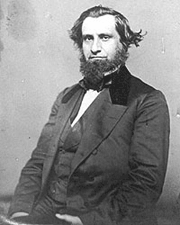 |
Joshua Speed
A farmer and store manager who invested in real estate, Joshua Speed was born in Kentucky in 1814. He became Abraham Lincoln's closest lifelong friend and served one term in the Kentucky legislature.
>> Learn more: http://www.answers.com/topic/joshua-fry-speed |
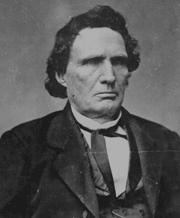 |
Thaddeus Stevens
Born in 1792 of a poor Vermont family, Stevens was further disadvantaged by a physical disability (a club foot) which was sometimes regarded as the mark of the “devil.” Throughout his life, he helped the poor and vulnerable, and defended those who were outside the political system – women, Indians, Chinese and especially slaves and Black freemen. A lawyer, he served in the Pennsylvania legislature, where he campaigned for public schools, and then the US House of Representatives, where he spoke loudly against the extension of slavery. He became the leader of the Radical Republicans during the Civil War, and chairman of the Committee on Reconstruction, where he pushed for the impeachment of Andrew Johnson, and (in vain) for economic reparations (“40 acres and a mule”) for freemen. He was also a major figure behind the Thirteenth, Fourteenth and Fifteenth Amendments. He was disappointed when the Fourteenth Amendment restricted voting to males. He died in 1868 as “Radical Reconstruction” was getting underway.
>> Learn more: http://www.civilwarhome.com/stevensbio.htm |
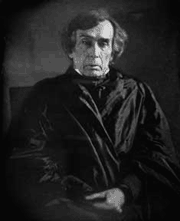 |
Roger Taney
He was born into a wealthy tobacco-cultivating family in Maryland that owned many slaves. After becoming a lawyer, he served in the Maryland legislature as a Federalist before becoming a supporter of President Andrew Jackson. He was Secretary of State and then Secretary of the Treasury under Jackson. He became the fifth Chief Justice of the Supreme Court in 1836 after the Senate at first refused to confirm his nomination. In his rulings he generally sided with the states against the national government, except in issues involving slavery. He upheld fugitive slave laws, ruling that free states could not refuse to obey federal laws requiring fugitives be apprehended and returned to slavery. In the 1857 Dred Scott decision, Taney declared that even the free descendants of slaves could never be citizens of the US, and that slavery could nowhere be barred from US territory. President Lincoln was his political enemy. In the middle of the Civil War, he ruled Lincoln’s suspension of habeas corpus unconstitutional. He died late in the Civil War on the same day his state of Maryland abolished slavery.
>> Learn more: http://www.bartleby.com/65/ta/Taney-Ro.html |
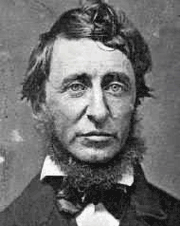 |
Henry David Thoreau
Born in Concord, Massachusetts in 1817, Thoreau was a writer, poet, tax resister and abolitionist who was part of a group of New England philosophers known as "Transcendentalists." He is perhaps best known today for his book about nature and the simple life, Walden, which he wrote after living in a small cabin at the edge of Walden Pond. He spent a night in jail (he hoped it would be longer) for refusing to pay taxes as a form of protest against the Mexican-American war and slavery. His notion of using "civil disobedience" to bring about social change played a major role in 20th century activism.
>> Learn more:
http://www.vcu.edu/engweb/transcendentalism/authors/thoreau
http://www.wsu.edu:8080/~wldciv/world_civ_reader/world_civ_reader_2/thoreau.html
|
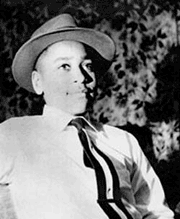 |
Emmett Till
Before 14-year-old Emmett Till left Chicago to spend the summer of 1955 with relatives near Money, Mississippi, his mother, Mamie Till Bradley, tried to instruct him on how to act around Southern whites. After his gruesome murder for speaking to a white woman, the courage she displayed in forcing the country to face what had been done to her son made the case of Emmett Till a watershed moment in the hideous history of lynching.
>> Learn more: http://afroamhistory.about.com/od/emmetttill/a/emmetttill.htm
|
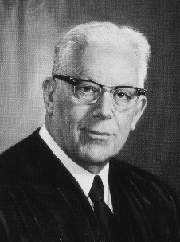 |
Earl Warren
Earl Warren, who was born in Los Angeles in 1891, became a lawyer, district attorney and California attorney general before being elected governor of California in 1942. A Republican, he served three terms as governor. In 1948, he was a Republican nominee for vice-president, and made a run for the presidential nomination in 1952. The following year, President Eisenhower nominated him to be Chief Justice of the Supreme Court. Chief Justice Warren presided over a court that ended Jim Crow segregation and expanded rights – and made him the subject of an "Impeach Earl Warren" campaign in the South. He retired from the court in 1969.
>> Learn more: http://www.landmarkcases.org/brown/warren.html |
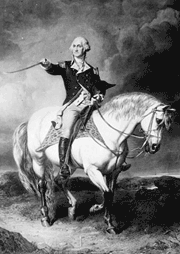 |
George Washington
The man known as the “father of the country” was born into a Virginia farming family in 1732. His father died when he was young. As a teenager, he was a surveyor, who helped plan roads in the western wilderness. He then made his mark as a soldier in the French and Indian War. His marriage to Martha Custis, a wealthy widow, enhanced his social status. He became a member of the Virginia legislature and the Second Continental Congress. In 1775, he was appointed Commander in Chief of the Continental Army and held that position during the American Revolutionary War. After the War was over, he refused to be made a king. After presiding as president of the convention that drafted the US Constitution, he became the first president of the United States, serving for two terms. As a politician, he generally took sides with the Federalists who wanted a strong national government, against Thomas Jefferson's party, the Democratic-Republicans.
>> Learn more: http://www.americanpresident.org/history/GeorgeWashington/ |
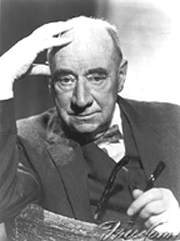 |
Joseph Nye Welch
Born in Iowa in 1890, Joseph Welch became and attorney and joined a Boston law firm. He served without compensation as special counsel to the US Army when Senator Joseph McCarthy was accusing it of harboring communists during televised hearings in 1954. After his famous rebuke of the senator, Welch departed from the hearing room and the audience applauded. McCarthy's spell was finally broken.
>> Learn more: http://www.answers.com/topic/joseph-welch |
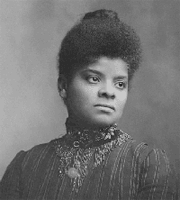 |
Ida B. Wells-Barnett
Born into slavery in
Holly
Springs
,
Mississippi
in 1862 – a few months before the Emancipation Proclamation, Ida B. Wells was a life-long activist. When she was 16 years old, her parents died of yellow fever, and she raised her six brothers and sisters. Then she became a teacher, and in 1883 moved to
Memphis
where she ran the local African-American newspaper and used it to attack lynching. After her life was threatened, she went to
England
where she established the London Anti-Lynching Committee. She toured
England
,
Scotland
and
Wales
giving speeches, and then moved to
Chicago
where she married attorney Ferdinand Barnett. She also formed the first civic organization for African-American women, continued her crusade against lynching, and was part of the "Committee of 40" which paved the way to the formation of the National Association for Advancement of Colored People (NAACP). She died in 1931.
>> Learn more: http://www.webster.edu/~woolflm/idabwells.html
|
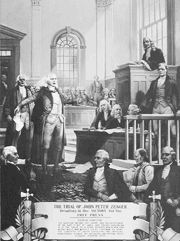 |
John Peter Zenger
Zenger immigrated to New York from the German Palatinate in 1710 and became an apprentice to William Bradford, New York’s only printer. In 1733 he was asked by opponents of the royal governor, William Cosby, to be the printer for the first political party newspaper in the country, The New York Weekly Journal. After articles critical of the governor were printed by Zenger, Cosby brought had him arrested and charged with “seditious libel.” Zenger was unable to pay the huge bail set by the governor. His lawyer, Andrew Hamilton, argued before the jury in 1735 that truth should be the defense to the charge of libel. In other words, if what was written was the truth, then Zenger should go free. The 12-man jury declared that Zenger was “not guilty” at the end of a trial that took a significant first step toward establishing the principle of freedom of the press.
>> Learn more: http://www.law.umkc.edu/faculty/projects/ftrials/zenger/zengeraccount.html |
|